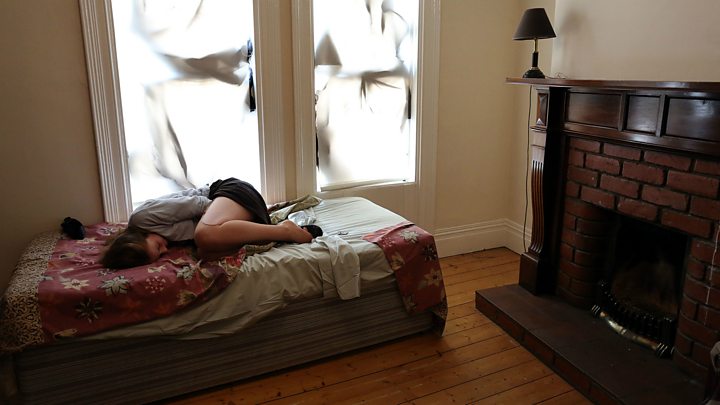Modern slavery and human trafficking in the UK is "far more prevalent than previously thought," the National Crime Agency has said.
The NCA said there were more than 300 live policing operations currently, with cases affecting "every large town and city in the country".
The agency estimated that there were tens of thousands of victims.
It said previous estimates of 10,000-13,000 victims in the UK were found to be the "tip of the iceberg".
"The more we look, the more we find," the NCA's vulnerabilities director Will Kerr said.
Mr Kerr said he had been shocked by what he had seen during this year's intensive efforts to break up gangs, with almost every major operation triggering even more investigations.
He warned that trafficking into modern slavery was now so widespread that ordinary people would be unwittingly coming into contact with victims every day.
'Recognise concerns'
It warned that the key sectors for slavery now included food processing, fishing, agriculture, construction, domestic and care workers and car washes.
Mr Kerr said: "We have been shocked by the scale of what we have seen...

"As you go about your normal daily life there is a growing and a good chance that you will come across a victim who has been exploited and that's why we are asking the public to recognise their concerns and report them."
The NCA said that signs of abuse included anything that suggested someone was being controlled or coerced into work, such as:
- the manner of their dress
- visible signs of injuries
- signs of stress
- the manner in which they had come to work in a particular area
What is modern slavery?
 HOME OFFICE
HOME OFFICE
Modern slaves in the UK, often said to be hiding in plain sight, are working in nail bars, construction sites, brothels, cannabis farms and in agriculture.
Traffickers are using the internet to lure their victims with hollow promises of jobs, education and even love.
Albania, Nigeria, Vietnam, Romania and Poland are the most likely countries of origin, but some victims are from the UK itself.
There is no typical victim. They can be men, women or children of all ages but it is normally more prevalent among the most vulnerable, minorities or socially-excluded groups.
Many believe they are escaping poverty, limited opportunities at home, a lack of education, unstable social and political conditions or war. But their slave masters are usually out to make financial gain.
Sexual exploitation is the most common form of modern slavery reported in the UK, followed by labour exploitation, forced criminal exploitation and domestic servitude.
'Twelve-year-old domestic slave'
People from Eastern Europe, Vietnam and Nigeria were the most common victims brought to the UK, Mr Kerr said.
He gave one example of a 12-year-old Roma girl who was stopped at border control and had been bound for a life as a domestic slave.
He said: "She was being brought in to work for a family in part of the UK, where she had effectively been sold by her father - or it had been facilitated by her father - and she was being brought in to take this family's children to school and pick them up every day, and clean the house in between.
"Twelve years old, same age as my youngest son."
Mr Kerr said criminal charges were pending against those involved in the case.
He added that the problems authorities are facing are further complicated by the fact some people do not realise they are a victim of slavery.
No comments:
Post a Comment